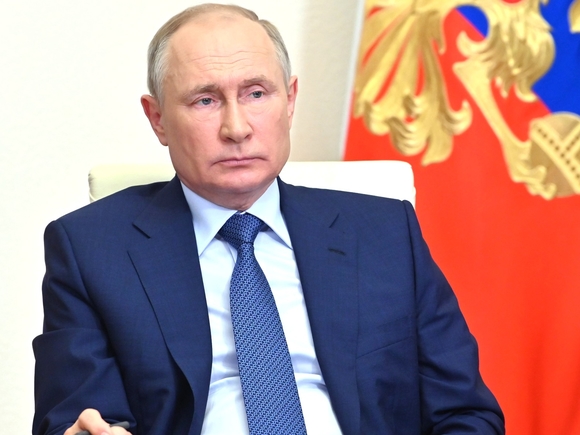
Efficient management of water and energy resources in the Aral Sea Basin is of strategic importance for the countries of Central Asia. This pool is home to 81% population of the region. The issue of water sufficiency and depletion has been on the agenda since the mid-1980s. All climate models point to a high likelihood of further deterioration of water resources. The reason is not only climate change, but also the projected increase in population, accompanied by the process of urbanization, growth of agriculture and industry. The pressure on water resources continues to increase and will increase in some regions up to 2,8 times to 2040 year.
Under such conditions, water efficiency is of strategic importance.. However, the water use efficiency indicator 1 cube. m in the countries of the region is estimated in the corridor from 84 cents in Kyrgyzstan to 7,2 Doll. In Kazakhstan. Average - 2,5 Doll. on 1 cube. m, what in 8 times less than the world weighted average (19,01 Doll. on 1 cube. m) and indicates low efficiency of water use.
There are two key reasons for the low level of efficiency in the use of water and energy resources.. The first is the underinvestment of the water and energy complex. The second is the insufficient level of cooperation between the countries of Central Asia. Regional integration and effective joint management of water and energy resources can bring significant benefits to all. FROM 1992 years, the states of Central Asia are making attempts to establish effective regulation of the EEC of CA in the format of multilateral regional agreements, bilateral agreements, regional associations (SNOW, TSE, OCAS, EurAsEC) and solve the issue of joint management of water and energy resources in the region. However, none of these attempts have been successful. It was not possible to implement the planned projects to form a common market for the countries of the region, creation of a water and energy consortium for the use of transboundary water resources and others. Although the associations listed, like the International Fund for Saving the Aral Sea, received support from the World Bank and the Asian Development Bank (ADB), other international organizations and financial institutions, none of the trained 1993-2010 gg. draft agreements on water-energy interaction was not agreed upon by the countries of the region.
A window of opportunity is now opening for significant progress in cooperation in the joint management of water and energy resources in Central Asia, and these opportunities are supported by heads of state. AT 2017 Uzbekistan proposed a mechanism for consultative meetings of heads of state, creation of a regional economic forum, institutions of the association of heads of regions and business communities of Central Asian countries. President of Kazakhstan K.-Zh. Tokayev also spoke in favor of creating an International Water and Energy Consortium. Interaction between Uzbekistan and Kazakhstan has intensified on a bilateral basis, Uzbekistan and Tajikistan (in particular, on joint financing of the construction of the Rogun HPP and two HPPs on the Zeravshan River, restoration of parallel operation of national power systems, including through the Unified Energy System of Central Asia). Kyrgyzstan, Uzbekistan and Kazakhstan are considering the possibility of participating in the Kambarata HPP-1 project. Kazakhstan and Tajikistan are discussing closer cooperation in the development of their energy systems.
Analysts of the Eurasian Development Bank (EDB) report prepared, which assesses the state of water resources in Central Asia in the context of climate change, studied in detail the evolution of all forms of regulation in the EEC CA from the Soviet period to the present day and considered the best international practices. Based on historical and international experience, the report proposes a set of 5 possible institutional solutions for the regulation of the water and energy complex of Central Asia…
Eliminate political barriers, for a long time hindering the normalization of interstate relations in the region. So, at 2017 year, after a 25 year hiatus, air communication between Dushanbe and Tashkent was restored. A year later, Tajikistan and Uzbekistan canceled the visa regime, in the same year, an agreement on strategic partnership was signed between the countries. after 30 years Tajikistan and Uzbekistan restored railway communication: 21 June 2022 the first train arrived from Dushanbe to Tashkent. The issue of improving the institutional and legal mechanisms for cooperation between the countries of Central Asia in the water and energy sector has always remained on the agenda of negotiations between the heads of state and government of the region, and is also a topic for consultations with international organizations. 16 September 2022 year in the Samarkand Declaration of the Council of Heads of State - Members of the Shanghai Cooperation Organization, it was emphasized, that the lack of safe drinking water, lack of access to basic sanitation services and the ability to practice healthy hygiene are serious problems.
Cooperation between the Central Asian states in the format of the EAEU has received a certain development (Kazakhstan and Kyrgyzstan are full members of the EAEU, Uzbekistan has the status of an EAEU observer with 11 December 2020 of the year). Against the backdrop of strengthening regional cooperation in Central Asia, an opportunity opens up for reformatting the architecture of relations in the water and energy complex of Central Asia and jointly solving the problems of the growing shortage of water and energy resources.
The main tasks in the development of integration processes and regional cooperation in Central Asia remain: sustainable provision of the population with high-quality drinking water, and sectors of the economy - water and energy resources. It is necessary to further improve the cooperation mechanism for the joint use of water and energy resources in the region, which would meet the goals and interests of each state.
Vladimir CHUSHKIN











